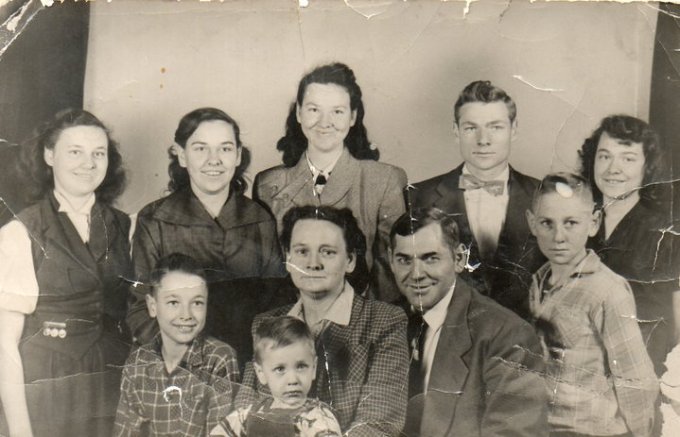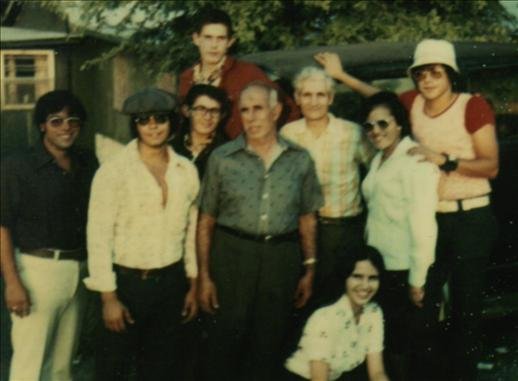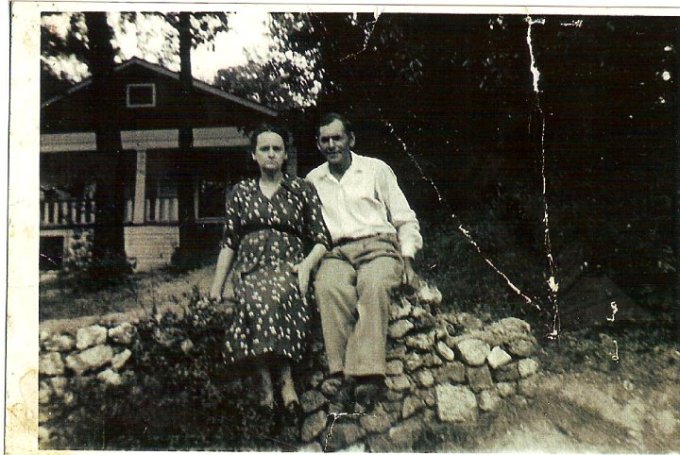At some point, it starts to become irrelevant. Which part of your family tree actually matters?
Every family’s got one- the “family tree enthusiast”. It’s ultimately the person with the most natural motivation to find out where the family came from- not the people who simply say, “I’d love to know more about our heritage…” but instead, the one who actually gets to work on it. And after I found myself spending hours sometimes researching the origins of last names I had heard of in our family, I soon realized I was appointed by destiny to be the “family tree enthusiast.”
Since last May, my grandmother on my dad’s side has been helping me with the research. Her last name is Clowers; which last year when I looked it up was an English name and meant “people from the hills”. But this weekend after sitting down with my grandmother again, I discovered that “Clowers” was changed from “Klauer”, and that was changed from “Clore”, which was changed from “Klaar”, which was not English at all, but instead Dutch.
The highest I could climb up my family tree was to a Dutch Lutheran named Hans Michael Klaar (born in 1630) who married a Greek woman named Ursula Sybella (born in 1635). When I Googled the last name “Klaar”, I found more Jewish ties to it than anything else. It’s possible that further up the family tree the Klaar’s were Dutch Jews, but that would be near impossible to confirm.
Climbing back down the family tree, the next woman being married into the family was another Greek woman, Anna Barbara Maria. Then Dorothy Kaifer (German), then two more presumed German women (no last names given but I’m assuming they were German since the family had by that point moved to Germany), then surprisingly a Jewish woman named Nancy Ullman (it translates as “rich man”), then Mary Harris (English), then Emmaline Lunsford (English), then Polly Katherine Green (English, Jewish, or Irish), then finally, my great-grandmother Madelee Wiseman (typically a Jewish-German last name which translates “white man”).
Then my grandmother (maiden name, Clowers) married my grandfather, John David Shell. All I know so far about his family tree are of Scottish (Scrimsher and Johnston), Cherokee Indian (name unknown), and German (Miller) origin. But the last name Shell has a potentially interesting origin: The Jews living in Germany were often given their last names by the Germans, who would insult them with last names translating to things like “stinky” and “ugly”. Shell used to be “Schell” and literally translates “loud, noisy, and clamorous”- which I would say is an insult. Plus, by Googling “Schell”, it’s Jewish people that pop up.
So what am I on my dad’s side of the family? Dutch-Greek-German-Jewish-Cherokee-Scottish-English. But I’m starting to come to the conclusion; what does really it matter anyway? At the top of both sides of my dad’s family tree are Dutch, Greek, and German. In the middle are Jewish and Cherokee. At the bottom of the trees are English and Scottish.

The Clowers-Wiseman family in 1953- my great-grandparents in the middle, my grandmother on the far right in the black dress
Which is more relevant? Am I more English and Scottish because those are the most recent? Am I less Dutch and Greek because those are at the top? Am I equally all of those things?
And that’s not to mention my mom’s side- she’s half Mexican and half Italian. But because of the rumors that my great-grandmother Mary Vite was Jewish (there are Jews with the last name Vite), I may not be ¼ Italian after all, but instead 1/8. Or what if she wasn’t half Jewish, but instead half Greek?
I will always be fascinated by ethnic backgrounds of people, but in a way, I am satisfied with what I know now about my own mysterious ancestors. Because what is most relevant in a family tree is not found by looking up, but instead by looking down and all around; it’s the people that still influence you, that love you, that care for you, and vice versa. That’s the part of your family tree that matters. And to be honest with you, I’m pretty dizzy after spending all that time so high up the family tree. It’s good to be back on the ground, with family members who are just as alive as I am.





